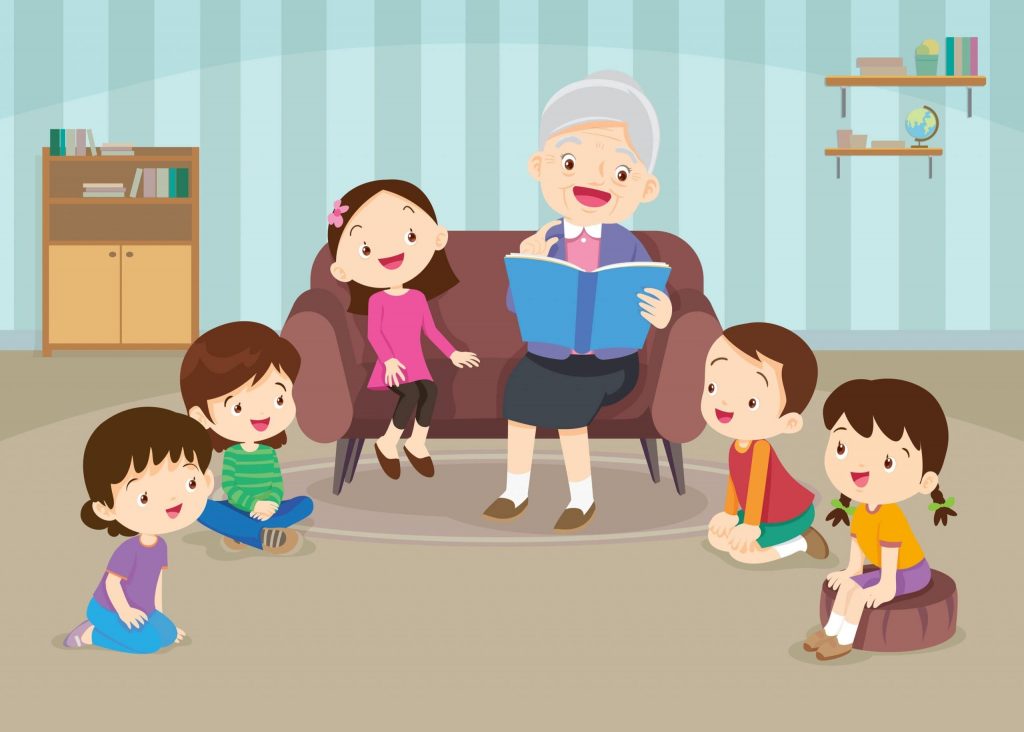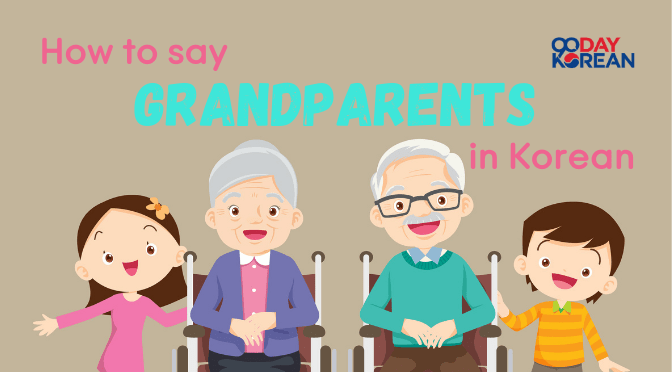What Is the Korean Word for Grandmother
In this lesson, we'll tell you how to say "grandparents" in Korean.
The main words you need to know are:
- 조부모 – grandparents
- 증조부모 – great grandparents
- 할머니 (halmeoni) – grandma
- 할아버지 (harabeoji) – grandpa
In Korea, titles are very important. There are specific Korean words to use in addressing family members. Similarly, there are certain words you use for your mother's side of the family, and certain words you use for your father's side.
Read on and we'll tell you exactly what you need to know!
Contents
- 1 How to say "Grandparents" in Korean
- 1.1 Grandparents on your father's side of the family
- 1.2 Grandparents on your mother's side of the family
- 1.3 "Great Grandparents" in Korean
- 2 How to say "Grandma" in Korean
- 2.1 "Grandmother" in Korean
- 3 How to say "Grandpa" in Korean
- 3.1 Grandfather in Korean
- 4 A word of caution about Romanization
How to say "Grandparents" in Korean
There are two different ways to say grandparents in Korean. The words you use depend on which side of the family they are on.
Grandparents on your father's side of the family
The word grandparents in Korean for the paternal side is generally expressed as 조부모.
조부 means "grandfather", while 조모 means "grandmother". If you put them together, you get 조부모.
Grandparents on your mother's side of the family
조부모 is usually used in reference to grandparents on your father's side. If you want to say "grandparents" in reference to your mother's side, you can add 외 to make 외조부모.
Another way of saying "grandparents" on your mother's side is 모성 조부모.

"Great Grandparents" in Korean
We'll also learn about how to call your great grandparents in Korean. You can address them as 증조부모 (jeungjobumo) in Korean. However, if you're referring specifically to your great-grandpa, you can call him 증조부 (jeungjobu) and 증조모 (jeungjomo) for your great-grandma.
Now we'll move on to the words you use specifically for your grandmother and grandfather in Korean.
How to say "Grandma" in Korean
Whether you are referring to a Korean grandma or to your own grandma, there's a common term if you want to say "grandma" in Korean. This means that whether you're staying in South Korea or just visiting, it's important to know how to address a Korean grandma if you see one.
In South Korea, the most common way to say grandma in Korean is 할머니. This specifically means grandma in English. It's pronounced as "hal-meo-ni".
There are different words for grandma or grandmother in Korean. Most of them are very rare and academic. You will do fine learning just using 할머니 (halmeoni).
Here are some example sentences:
우리 할머니는 시골에서 살고 계셔요. (uri halmeonineun sigoreseo salgo gyesyeoyo.)
Our grandma lives in the countryside.
할머니, 파이를 조금 더 먹어도 되요? (halmeoni, paireul jogeum deo meogeodo doeyo?)
Grandma, is it okay to have some more pie?
매주말 할머니 댁에 방문하시로 가. (maejumal halmeoni daege bangmunhasiro ga.)
I visit my grandma every weekend.
"Grandmother" in Korean
Now you know how to say grandma in Korean, let's learn its formal version, grandmother. The correct word is 할머님 (halmeonim). It is super easy to remember since the formal term only comes with one extra syllable! 님 (nim) in general is a formal attachment to someone's name. However, in the case of grandmother, the formal term is not that often used, and you will do great with just using 할머니 (halmeoni).

You can use 할머니 whether you're talking about your grandma from your father's side or your mother's side. In a technical sense, the word 외할머니 (oehalmeoni) specifically means your grandma from your mother's side. However, you do not need to worry about using 외할머니 in everyday situations.
Can't read Korean yet? Click here to learn for free in about 90 minutes!
How to say "Grandpa" in Korean
Just like how to address grandma which is 할머니 (halmeoni), the first syllable in "grandpa" is 할 (hal). Then it is followed by the word for dad, 아버지 (abeoji). Together, they form the most common term for grandpa, 할아버지 (harabeoji)!
Here are some example sentences:
우리 할아버지는 혼자 시골에서 살고 계셔요. (uri harabeojin honja sigoreseo salgo gyesyeoyo.)
Our grandpa lives in the countryside alone.
할아버지, 케이크를 조금 더 먹어도 되요? (harabeoji, keikeureul jogeum deo meogeodo doeyo?)
Grandpa, is it okay to have some more cake?
매주말 할아버지 댁에 방문하시로 가. (maejumal harabeoji daege bangmunhasiro ga.)
I visit my grandpa every weekend.

Grandfather in Korean
In cases where you want to be formal, you may want to replace 지 with 님, forming the formal way to say grandfather in Korean, 할아버님 (harabeonim). It's easy to remember as it sounds almost the same as its female counterpart, 할머님 (halmeonim), right?
And when you want to be specific you are speaking of your maternal grandfather, you can add 외 in front of 할아버지. This way, you're creating the word 외할아버지 (oeharabeoji). This word means grandpa from your mother's side.
While it's good to know both of these words, usually in everyday life, Koreans only use 할아버지 to refer to all the grandpas in their family. Now you'll know how to use the Korean word for grandfather in different situations.
A word of caution about Romanization
While you can study the Korean words in this article simply by reading their romanized versions, it will come in handy for you to be able to read Hangeul (the Korean alphabet) if you ever want to take your Korean language skills to the next level. Hangeul is quite simple, and you can learn it in just 90 minutes!
After you've familiarized yourself with Hangeul, you'll be able to supercharge your Korean learning. Understanding K-Dramas, reading signs, talking to Korean friends, and getting familiar with the Korean culture will all become a lot easier. So, if you're serious about learning the Korean language, why not learn Korean today?
And that's how you say grandparents, grandma, and grandpa in Korean and use the words in sentences! Now you know the ways to say the Korean words for grandparents, either from the side of your mother or father. Maybe you'd even like to practice these words with your own grandparents as a pet name? Or share this new knowledge with your friends? We'd love for you to tell us something about your grandparents in Korean in the comments below! We'd also love to give answers to your questions!
What Is the Korean Word for Grandmother
Source: https://www.90daykorean.com/grandparents-in-korean/
